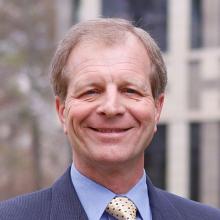Fellow SRCD Members,
I seek your input.
SRCD has completed moving its headquarters from Ann Arbor, Michigan, to Washington, D.C. We are located at 1825 K Street, N.W., within shouting distance of the White House (well, it would be a loud shout, but some of us are getting practice). When SRCD was created by the United States National Academy of Sciences in 1933, the stated goals were, “To stimulate and support research, to encourage cooperation among individuals engaged in the scientific study of child development, and to encourage applications of research findings.” Certainly, we have been successful in the first two goals and will continue to do so through our journals, meetings, and programs. The third goal has long been a challenge, and it is why we have moved to Washington. This move signals our enhanced commitment to using our science to improve society globally, and it may prove to be among the most significant events in the history of our organization.
So now what?
Our science is mature enough that we have many research findings to apply, but we have not yet had enough impact on improving society. The contemporary world begs for our evidence. As scientific researchers, we have discovered that traumatic early childhood experiences make enduring imprints on neural synapses and biobehavioral development, and that interventions can both prevent these experiences and ameliorate their impact, but children around the globe continue to suffer from exposure to violence inside their homes, in their neighborhoods, in wars, and through daily micro-aggressions. As scientists, we have documented growing disparities across racial, ethnic, and cultural groups in the affordances children are provided and the outcomes they experience, but we have not implemented an antidote. As scientists, we have learned that early cognitive enrichment can have inordinate impact on life trajectories, and yet government policies force families to fend for themselves without sufficient public supports for early learning, nutrition, and healthcare.
Historically, we have been slow to act, and now we are trying to catch up. But we have no roadmap for how to navigate this new territory. Do we presume to act as a single voice, or do we support the distinct voices of each member? SRCD policy has been to encourage members to summarize scientific findings from their own perspective, without taking a stance as an organization. This past month, however, for the first time in the history of our organization (as best I can recall), SRCD signed on to an amicus brief to the United State Supreme Court. The brief cited studies showing the adverse impact that the government’s decision to end DACA policy will likely have on children’s health and well-being.
We are doing more. We have set into place a process of "rapid response” to urgent policy issues, through which SRCD members, SRCD staff members, and the Governing Council collaborate to produce statements in response to pressing policy crises. We issued the first such statement this past week, about the critical need for evidence-based approaches to interviewing unaccompanied children at the U.S.-Mexico border.
We have commissioned and disseminated numerous policy and evidence briefs authored by members about issues including the impact of digital games on cognitive development, paid family and medical leave, health insurance, disparities in pediatric dental care, scaling up high-quality early childhood interventions in global contexts, corporal punishment, food insecurity, dual language learning, the federal budget, involuntary separation of children from their parents, and more.
We are facilitating interaction between scientists and policymakers at our Biennial meetings, including a captivating address by Representative Elijah Cummings in Baltimore, Maryland. We are inspired by his vision and mourn his recent passing. mings in Baltimore, Maryland.
Our heralded U.S. Federal and State Policy Fellows program, crafted for many years by Marty Zaslow and by Mary Ann McCabe before her, now under the leadership of Kelly Fisher, nurtures this interaction by placing SRCD members in federal executive and legislative branch contexts for a year as a way to use science to inform policy, learn how policy can inspire new science, and grow a team of translation scientists. We are expanding this successful program to state-level contexts and hope to find funding partners to support policy fellows around the globe.
As we continue to grow into the policy arena, we face challenges and quandaries. I am writing this note to seek your input about these questions:
Priorities. How should we balance our priorities between supporting developmental science and facilitating its application? Many of our members conduct research from the “bench” of the university laboratory. Given precious time, resources, and modest budget, how important is it to direct our attention to public policy, practice, and public discourse?
Problems. What are the most important societal issues that call for our attention, and what are the most important discoveries in developmental science that have reached a level of cnsensus for application?
Process. What process should we use to decide what we communicate? We are a diverse group of 6,000 scientists representing many nations and political perspectives. Should we have all members vote and let majority rule (although science itself does not progress by vote), should we have a committee make these decisions, or should we use some other process? Thorny process issues have led some organizations to steer clear of policy engagement altogether.
Please email me directly at dodge@duke.edu. I promise to read and respond to you individually, and I will write a summary note to the full membership next spring.
Thank you.
Ken Dodge
SRCD President
